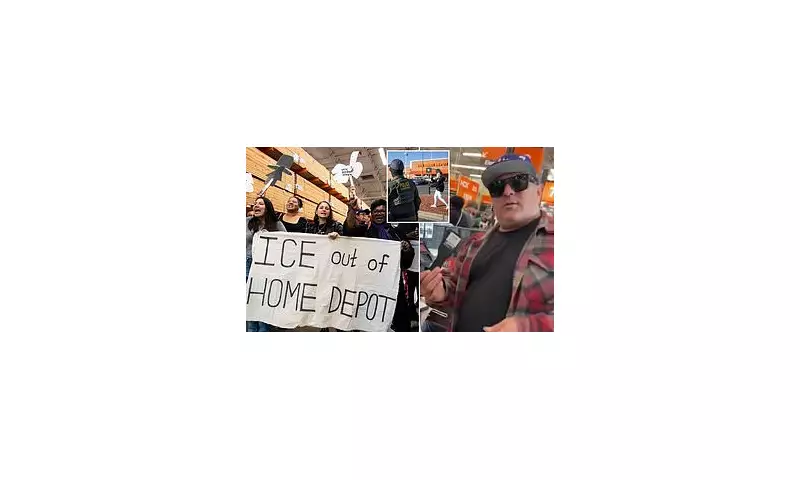
In an unusual act of political dissent, close to one hundred demonstrators converged on a Home Depot store in Monrovia, Los Angeles, this past Saturday. Their mission: to stage a 'buy-in' protest aimed squarely at the retailer for its alleged connection to recent Immigration and Customs Enforcement (ICE) operations.
The Bizarre Mechanics of the Protest
The protest strategy was meticulously disruptive. Participants queued in long lines to purchase a specific, low-cost item—17-cent ice scrapers—only to immediately rejoin the queue to return the product. This cycle of buying and returning was designed to create significant delays and administrative chaos, effectively clogging the store's operations with what organisers termed 'nuisance orders'.
Similar coordinated actions unfolded simultaneously at Home Depot locations in Charlotte, North Carolina, and Burbank, California. Erika Andiola, the political director for the National Day Laborer Organizing Network (NDLON), explained to the LA Times that the symbolic act was intended to send a clear message to the home improvement giant: to 'scrape ICE out of their stores.'
Home Depot: A Focal Point in the Immigration Debate
The protest is a direct response to a series of ICE operations that have taken place at Home Depots across the United States. For years, Home Depot stores in Southern California have served as informal hiring hubs for day labourers, a mix of individuals with both legal and undocumented status. This has now made the store parking lots a prime target for federal immigration agents.
The targeting appears to be deliberate. Earlier this year, Stephen Miller, the White House deputy chief of staff and a chief architect of Trump's immigration policies, reportedly identified Home Depot as a focus for immigration raids. Since the administration intensified its crackdown, at least a dozen Home Depot stores in Southern California have been targeted, some on multiple occasions.
The human impact of these raids was highlighted last month by social media influencer Bobbi Althoff. She revealed that her lifelong family friend, Felix Morales Gomez, was arrested in one such operation. Althoff acknowledged Gomez was an undocumented migrant who arrived in the US in 2004 but stressed he had no criminal record and was simply seeking construction work to support his family when he was detained.
Corporate Response and Political Divisions
In the face of these accusations, Home Depot has publicly distanced itself from the enforcement actions. George Lane, the company's manager of corporate communications, stated, 'We do not coordinate with ICE or Border Patrol, and we're not involved in the operations. We aren't notified that immigration enforcement activities are going to happen, and often, we don't know operations have taken place until they're over.'
Meanwhile, the political strategy behind the deportations appears to be a source of internal conflict within the administration. Reports suggest a rift exists between Trump's border czar, Tom Homan, and ICE Director Todd Lyons, who favour a targeted approach focusing on convicted criminals, and DHS Secretary Kristi Noem. Noem is reportedly advocating for a broader, more aggressive approach to increase the number of daily deportations, a key metric for the Trump administration which has pledged to remove up to 1,500 individuals per day.
According to the DHS, since Trump's return to office, an estimated 400,000 people have been rounded up and deported, with a further 1.6 million opting to self-deport.





